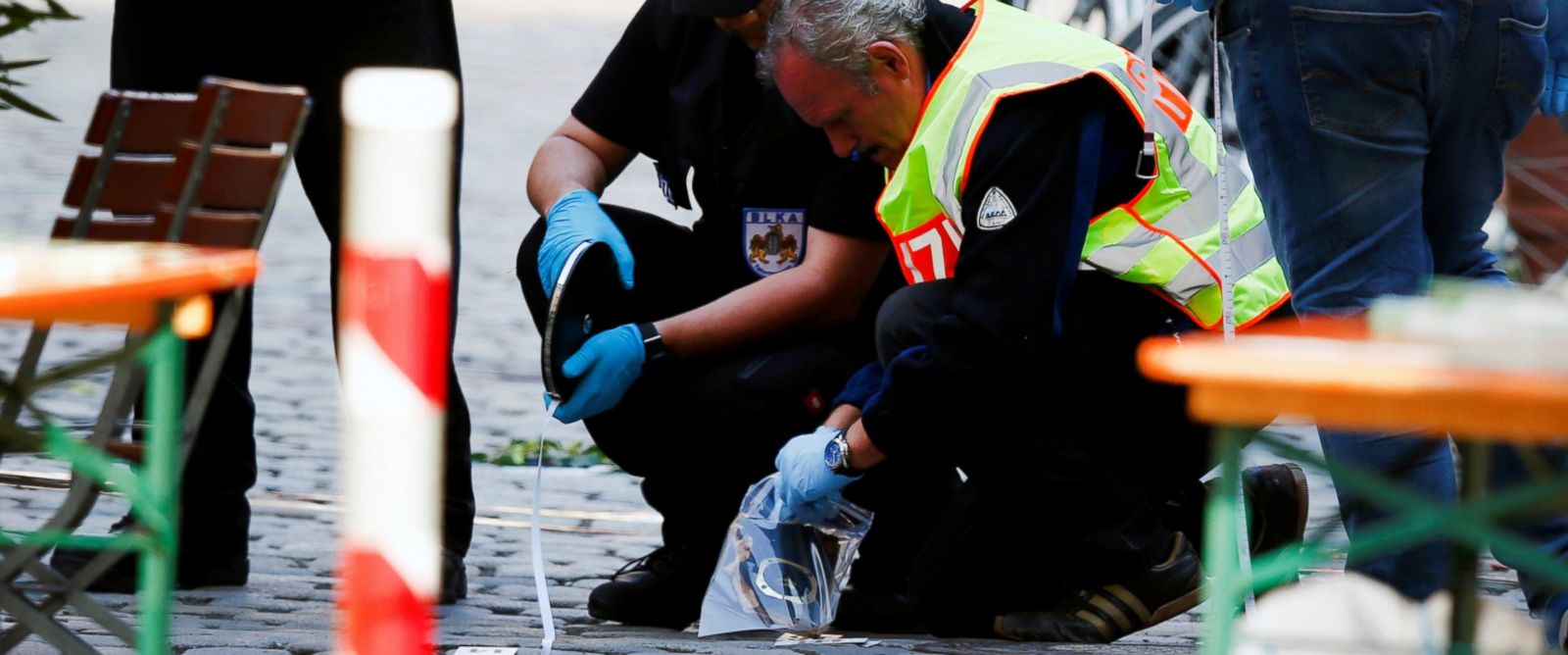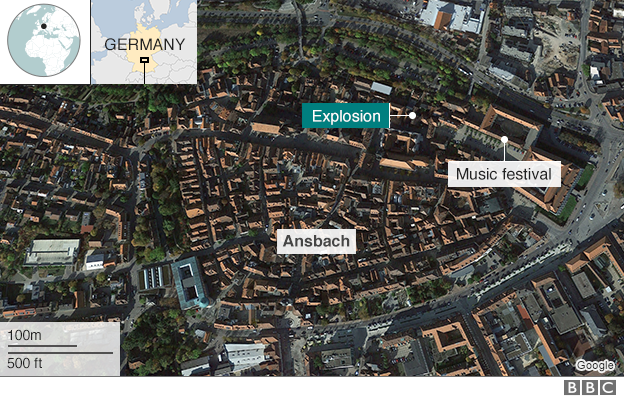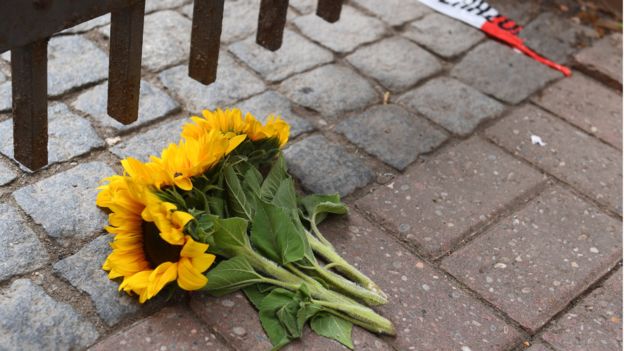Ansbach explosion: Bomber pledged allegiance to IS

The Syrian man who blew himself up in Ansbach, Germany, on Sunday made a video pledging allegiance to the leader of so-called Islamic State, Bavarian authorities say.
The man threatened a "revenge attack" on Germans in the video, they said.
Germany's federal prosecutor's office has taken on the case due to "the suspicion of membership of a foreign terrorist organisation".
IS has claimed it was behind the attack and the Syrian was an IS "soldier".
Fifteen people were injured, four of them seriously, when an explosive device in the man's rucksack, packed with shrapnel, went off close to a music festival in the small town, which is near Nuremberg.
If the attack is confirmed as IS-linked, it would be the first Islamist-inspired suicide bomb on German soil.
The bomber had been denied asylum in Germany and was due to be deported to Bulgaria, where he had previously been granted refugee status.
He had received psychiatric inpatient treatment and had tried to take his own life on two previous occasions, officials said.
Naming the man as 27-year-old Mohammad D., the federal prosecutor's office said in a statement (in German) that a video in which a masked man pledges allegiance to Abu Bakr al-Baghdadi, the IS leader, was found on one of the attacker's phones.
Investigators believe that the masked man is Mohammad D. himself. Authorities are investigating whether other people were involved in the crime.
State Interior Minister Joachim Hermann said two phones, multiple SIM cards and a laptop were found with the body of the asylum seeker or at his accommodation.
The attacker announced in the video "an act of revenge against Germans because they were standing in the way of Islam," Mr Hermann said.
Germany was already reeling after five people were wounded on a train in another part of Bavaria a week ago by an axe-wielding teenager from Afghanistan who had pledged allegiance to IS.
On Friday nine people were killed by a teenage gunman in the state capital, Munich, who then shot himself dead. That incident was not believed to be jihadist-inspired.
Bavarian authorities said that the bomb which exploded in Ansbach was clearly meant to kill as many people as possible.
Further bomb-making equipment was found at the asylum seeker accommodation where the man was living, including a fuel canister, hydrogen peroxide and batteries, they added.
A detailed analysis of the content of all the videos found on the man's electronic devices was ongoing, Mr Hermann said.
"I think that after this video there's no doubt that the attack was a terrorist attack with an Islamist background," the state interior minister said.
Seven deadly days
A week of bloody attacks has frayed nerves in Germany, which led the way in accepting asylum seekers from Syria. To date, two of the attacks have been linked to a militant group:
18 July: An axe-wielding teenage asylum seeker from Afghanistan is shot dead after injuring five people in an attack on a train. IS claims the attack, releasing a video recorded by the attacker before the incident
22 July: A German teenager of Iranian extraction goes on a shooting rampage in the Bavarian state capital, Munich, killing nine people, most of them migrants, before shooting himself. He is said to have been obsessed with school shootings
24 July: A Syrian asylum seeker is arrested in the town of Reutlingen, Baden-Wuerttemberg, after allegedly killing a Polish woman with a machete and injuring two other people. Police suggest it was probably a "crime of passion"
24 July: A failed Syrian asylum seeker blows himself up outside a music festival in the small Bavarian town of Ansbach, injuring 15 other people.
The German interior minister, Thomas de Maiziere, acknowledged possible links to international terrorism and IS but also added: "At the same time, we cannot exclude a particular psychological or mental disorder or instability — or we may be talking about a combination of both factors."
Mr de Maiziere has ordered increased police presence in public places.
A neighbour at the asylum seeker accommodation where Mohammad D. lived said he often lied, without any reason, perhaps for attention. He had always said he did not like IS, the neighbour said.
Germany has been the main destination of Syrian asylum seekers entering the EU, most of them arriving irregularly in Greece via Turkey.
Only 23 Syrians had their applications for asylum rejected by the country last year, out of a total of 105,620 decisions on Syrians' applications. A common reason for rejecting an application is when the asylum seeker submits false or incomplete information.
Just under half of asylum seekers rejected by Germany in the past two years were allowed to stay on in the country, according to a recent report in German daily Die Welt (in German).
The Ansbach bomber, who was among those rejected for asylum in 2015, appears to have been placed in a former hotel in the town, designated by the municipal authorities for asylum seekers since 2014.
Политика конфиденциальности | Правила пользования сайтом













